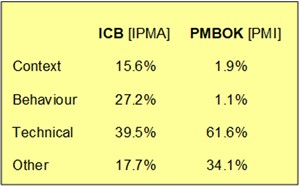which impact on the management of projects
Series on Project Contexts
SERIES ARTICLE
By Alan Stretton, PhD (Hon)
Sydney, Australia
INTRODUCTION
Much of the literature on project management, including bodies of knowledge, competency standards and the like, tends to treat projects as if they exist independently from their context. For example, Thiry 2011 quotes from Crawford & Cooke-Davies 2010, as follows.
“In the search to define a distinct body of knowledge and set of practices that could be claimed as “project management”, the focus has been on the project. It is largely isolated from its context and stripped to its bare essentials to enable the development of generic standards” (p.2)
However, projects do not happen in a vacuum. When you manage projects, there are invariably many contextual issues that also have to be managed as part of the overall project management process, irrespective of the type of project. These contextual issues are often very important indeed, but generally do not get the attention they deserve in the project management (PM) literature.
 This paucity of attention to the context of projects is illustrated in the table on the left from White 2018, which compares IPMA’s (International Project Management Association) ICB (Competence Baseline) with the PMBOK Guide, in respect of four broad groups of contents. As can be seen, the percentage for context in the PMBOK Guide in particular is very low.
This paucity of attention to the context of projects is illustrated in the table on the left from White 2018, which compares IPMA’s (International Project Management Association) ICB (Competence Baseline) with the PMBOK Guide, in respect of four broad groups of contents. As can be seen, the percentage for context in the PMBOK Guide in particular is very low.
In one sense this paucity of attention is hardly surprising. The possible permutations and combinations of relevant contextual issues are practically endless. But, I believe we need to get a better handle on project contexts than we currently have, and that is the concern of this series of seven articles. In this initial article I will identify and discuss six key contexts, which will be represented in associated pictorial formats.
We will start with the context of project contributions to organisational strategic management, and then go on to look at some differences for project management undertaken in supplier organisation (SO) and owner organisation (OO) contexts.
We will then move on from organisational contexts to look at two which are related to projects themselves, namely the contexts of project dimensions, and project types. Finally, we look at two external contexts, which are those of external influencers on projects, and of application areas in which projects are undertaken.
THE CONTEXT OF ORGANISATIONAL STRATEGIC MANAGEMENT
Project contributions to organisational strategic management
An emerging conviction among those professionals who do research on, publish, and practice project management is the belief that projects are building blocks in the design and execution of organisational strategies. (Cleland & Ireland 2002:106)
Many other authors also relate projects directly with organisational strategies, including Shehar & Dvir 2007:23, who say, very directly, “Most projects are part of the strategic management of their organizations,…”
As far as I can ascertain, virtually all projects, no matter how originated, are, or soon become, direct components of organisational strategic plans and their execution. In looking at contexts of projects, it therefore seems reasonable to first consider projects in the context of the organisational strategies of which they are a part.
More…
To read entire article, click here
How to cite this paper: Stretton, A. (2019). 1. Representations of a variety of contexts which impact on the management of projects, Series on Project Contexts; PM World Journal, Volume VIII, Issue V (June). Available online at https://pmworldlibrary.net/wp-content/uploads/2019/06/pmwj82-Jun2019-Stretton-PM-context-series-1-Variety-of-contexts.pdf
About the Author

Alan Stretton, PhD
Faculty Corps, University of Management
and Technology, Arlington, VA (USA)
Life Fellow, AIPM (Australia)
![]()
Alan Stretton is one of the pioneers of modern project management. He is currently a member of the Faculty Corps for the University of Management & Technology (UMT), USA. In 2006 he retired from a position as Adjunct Professor of Project Management in the Faculty of Design, Architecture and Building at the University of Technology, Sydney (UTS), Australia, which he joined in 1988 to develop and deliver a Master of Project Management program. Prior to joining UTS, Mr. Stretton worked in the building and construction industries in Australia, New Zealand and the USA for some 38 years, which included the project management of construction, R&D, introduction of information and control systems, internal management education programs and organizational change projects. He has degrees in Civil Engineering (BE, Tasmania) and Mathematics (MA, Oxford), and an honorary PhD in strategy, programme and project management (ESC, Lille, France). Alan was Chairman of the Standards (PMBOK) Committee of the Project Management Institute (PMI®) from late 1989 to early 1992. He held a similar position with the Australian Institute of Project Management (AIPM), and was elected a Life Fellow of AIPM in 1996. He was a member of the Core Working Group in the development of the Australian National Competency Standards for Project Management. He has published over 200 professional articles and papers. Alan can be contacted at alanailene@bigpond.com.au.
To see more works by Alan Stretton, visit his author showcase in the PM World Library at http://pmworldlibrary.net/authors/alan-stretton/.









